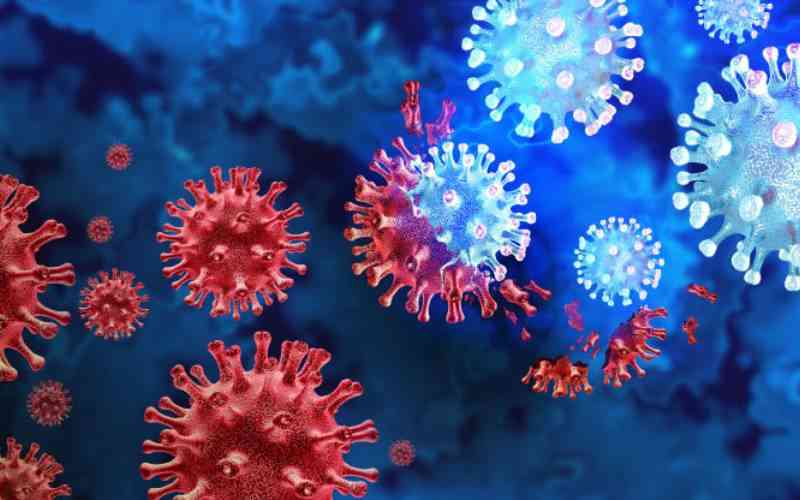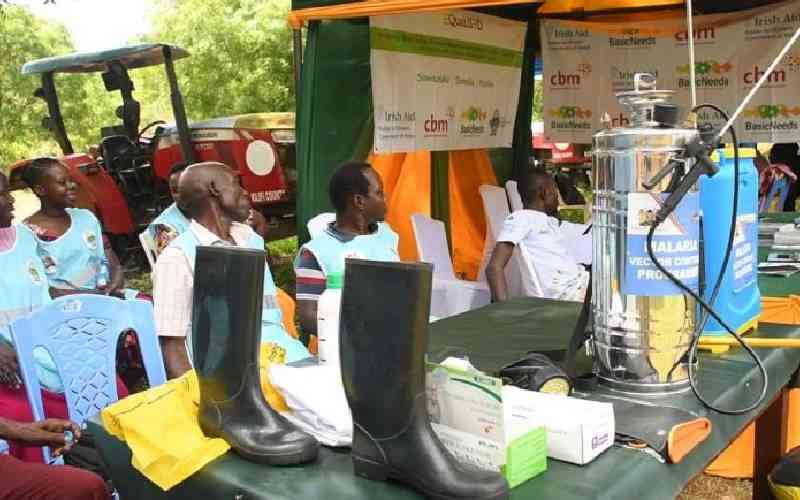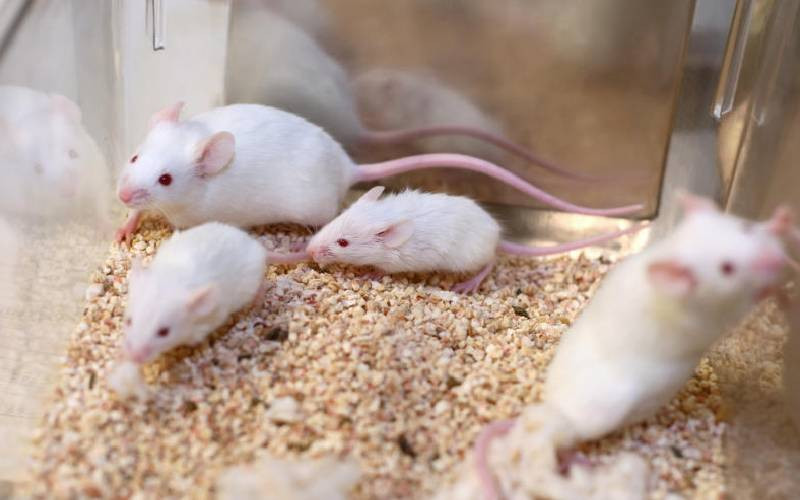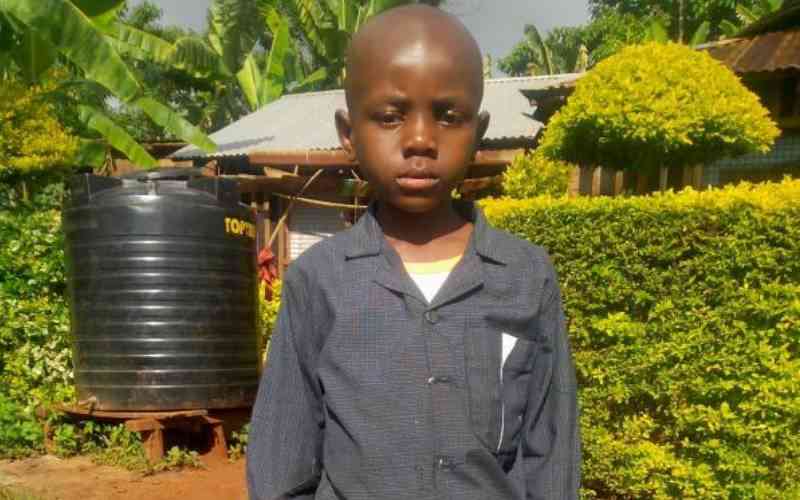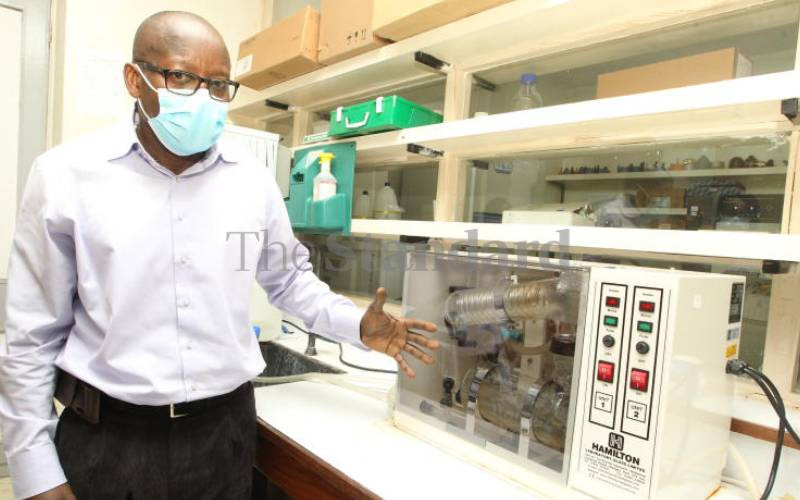
Low Covid-19 infections and fatalities in Kenya do not mean the country is off the hook, scientists have warned.
According to researchers, surveillance and adherence to public containment measures are still vital in fighting the disease. Lately, the country has been recording a positivity rate of less than five per cent, with about 20 cases every day.
Daniel Lang'at, the head of the department of disease surveillance in the Ministry of Health, warned that even with the reduced infections and fatalities, the pandemic is not yet over.
"Until the very last case, people have to be cautious. Despite there being no upsurge in Covid-19, people have to remain vigilant," said Dr Lang'at.
The expert advice comes at a time the general population has thrown caution to the wind, pretending Covid does not exist.
The World Health Organisation (WHO) recently reviewed guidelines on Covid-19 following reports on a new strain of the virus.
In the new guidelines, updated on January 13, WHO asked states to advocate wearing of masks, irrespective of reduction in number of local cases.
- Kenya targets to produce 6 million pneumonia vaccines every month
- From Monkey pox, Covid-19 and Nipah virus: Why animal-to-human diseases are on the rise
- From wagging tails to healthy tales: How pets improve mind and body
- Why US is experiencing largest measles outbreak
Keep Reading
The new guidelines suggest 10 days isolation from the date of symptoms, for symptomatic patients. Earlier, patients were discharged 10 days after symptom onset, and three days after recovery.
Asymptomatic patients will be put in isolation for five days, as compared to 10 days previously, with patients discharged from isolation early if they test negative on an antigen-based rapid test.
"Masks are recommended following a recent exposure to Covid-19, when someone has or suspects they have Covid-19, when someone is at high risk of severe Covid-19, and for anyone in a crowded, enclosed, or poorly ventilated space," reads a section of WHO guidelines.
Dr Lang'at said Kenya will adhere to the new WHO guidelines, including scaling up vaccination, wearing of facemasks, and community surveillance.
Asymptomatic patients, he said will be isolated for 10 days, while symptomatic ones will be isolated for five days, as opposed to10 days.
Kenya lifted stringent Covid-19 restrictions in March last year.
Proof of negative Covid-19 test required for air passengers was one of the requiremnts lifted by the then Health Cabinet Secretary Mutahi Kagwe.
However, Mr Kagwe maintained that Kenyans were to continue adhering to public health preventive measures, namely handwashing and social distancing.
"We are trying to understand, and adopt new Covid-19 guidelines as stipulated by WHO, to our context," said Dr Lang'at.
The official said surveillance is ongoing. "Surveillance will continue, even beyond the declaration of containment of the pandemic".
Prof Omu Anzala, a virologist in the department of medical microbiology, College of Health Sciences, University of Nairobi, said there is need to keep surveillance, to know the type of strain circulating.
"Surveillance is important in informing the next generation of jabs administered to the population, in line with circulating strain," said Anzala.
At least four strains of the Covid-19 virus are circulating in Kenya, namely Beta, Alpha, Delta and Omicron.
A new strain XBB.1.5, nicknamed 'Kraken', is spreading rapidly across the globe, according to WHO.
The variant is a combination of Omicron BA.2 and Delta.
WHO technical lead, Maria Van Kerkhove, said the strain has the potential of causing a major wave, because preliminary investigations have found out that it is the most transmissible variant, and has immunity escape ability.
The virus was first detected in the US in October, and has spread to various states in Europe, and the US, according to WHO.
China has also enhanced surveillance as new infections spread, though scientists are yet to confirm the circulating strain.
In the African continent, the variant has been reported in South Africa.
Prof Matilu Mwau, an infectious disease specialist, and Kenya Medical Research Institute (Kemri) said XBB.1.5 sub-variant appears to be more aggressive.
The variant has been documented to account for 27.6 per cent of Covid-19 cases.
"The new variant is making people anxious. Yes, we should worry that they can get to us, and knock people, especially, those who have not been vaccinated," said Mwau.
Kemri laboratories have been conducting surveillance, but the variant has not been detected.
The positivity rate for the country, according to Mwau, has remained manageable.
"We are testing for Covid-19 and checking to see variants we have. We are observing a trend where Covid-19 comes with peaks, linked to either new variants, like weather patterns," added Mwau.
According to Covid-19 situation report for WHO Africa Region, as documented by the Centre for Epidemiological Modelling and Analysis (CEMA), dated January 12, 2023, Africa has reported 8,924,623 cases and 174,060 deaths, since the pandemic was reported in 2020.
In the report, Kenya has recorded 342,599 cases, third in Africa, and 5,688 reported deaths, placing it the fourth, in the region.
The weekly ratio of reported cases over the last two weeks is 2.5 (second). The weekly ratio of reported deaths cannot be calculated, as no new deaths have been reported in the last two weeks.
South Africa leads with a total of 4,050,288 cases, Ethiopia is the second with 498,733 cases while Kenya has recorded 342,599 cases.
Zambia and Botswana are also among countries with more Covid-19 infections, at 335,641, and 328,190 respectively.
In terms of fatalities, South Africa leads in the continent with 102,568 deaths, Ethiopia has recorded 7,572, Algeria 6,881, Kenya 5,688, Zimbabwe 4,082, with Namibia documenting 4,028.
Anzala said there is need to carry out reminders for the public to adhere to set guidelines, including wearing of facemasks in crowded places like in buses, washing hands with soap and water.
"Indeed, we might not be seeing many diseases, but the diseases are still there. Covid-19 is still spreading.
All that needs to be done is reminders from time to time because the natural tendency of human beings is to always go back to where they were. Do not wait for anything. Get hold of necessary precautions, to ensure that you do not get infected with Covid-19," he advised.
Mwau added that public health measures to prevent infections should be followed, including wearing facemasks, cleaning hands with soap and water, and picking the Covid-19 jab.
"We should normalise wearing masks in crowds when we think we might be exposed," said the researcher, adding that there are scientific records that those vaccinated reduce risks of being killed, and disease severity.
Regarding guidelines, he said: "We have always said when in a crowded or closed environment, wear a face mask. This has never stopped, only that people stopped wearing masks, but we have always advocated safety."
According to Anzala, the public should pick Covid-19 jab, and for those who picked their first dose and second go for boosters as research has shown that vaccines wane with time.
He attributed hesitancy witnessed to behavioural change, where vaccination is mostly associated with babies.
A section of the population also linked to jab as a form of family planning, misinformation that contributed to laxity.
"Initially, the way medicine has always been practised, in this country and globally, vaccinations are meant for children. Parents will religiously take their children for vaccination, but when you begin an adults' vaccination programme, people believe as adults, they do not need vaccines," he said.
As per the ministry's data, an estimated 24 million jabs have been administered, with some 10 million people having been fully vaccinated.
Kenya had planned to vaccinate 27 million, by last year, an estimate yet to be met.
Prof Mwau said: "There are very many people who are not vaccinated, and have never been infected. They are not safe because their time might be coming. It is good for people not to think they are safe."
Dr Lang'at encouraged the public to take personal responsibility, more so those confirmed to have the disease, should wear facemasks and isolate, and those yet to pick the jab should get vaccinated.
 The Standard Group Plc is a multi-media organization with investments in media
platforms spanning newspaper print
operations, television, radio broadcasting, digital and online services. The
Standard Group is recognized as a
leading multi-media house in Kenya with a key influence in matters of national
and international interest.
The Standard Group Plc is a multi-media organization with investments in media
platforms spanning newspaper print
operations, television, radio broadcasting, digital and online services. The
Standard Group is recognized as a
leading multi-media house in Kenya with a key influence in matters of national
and international interest.

